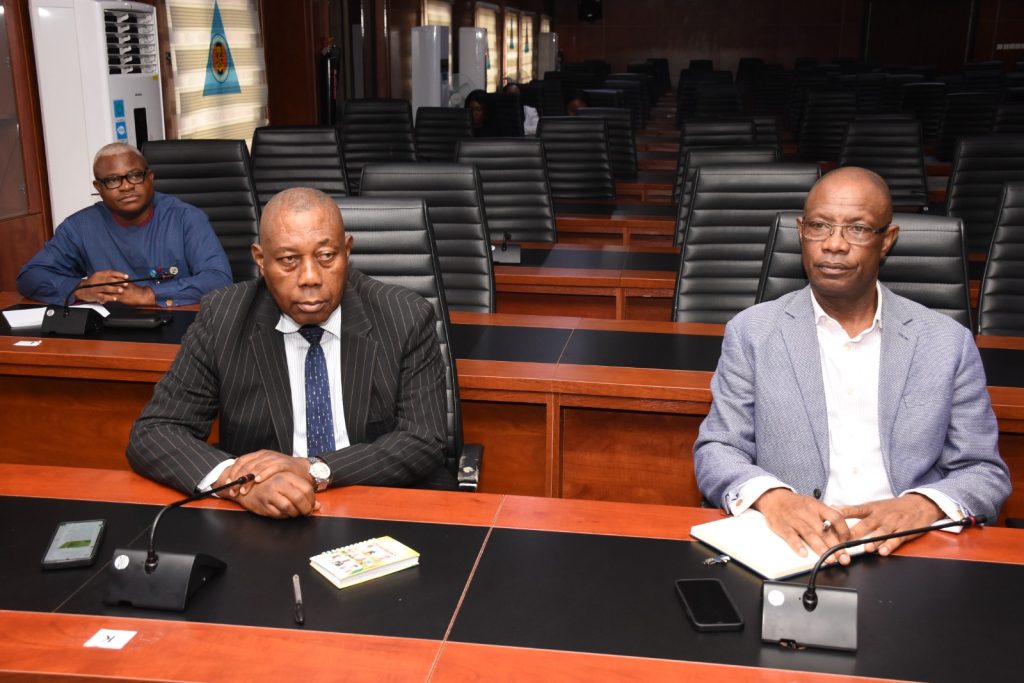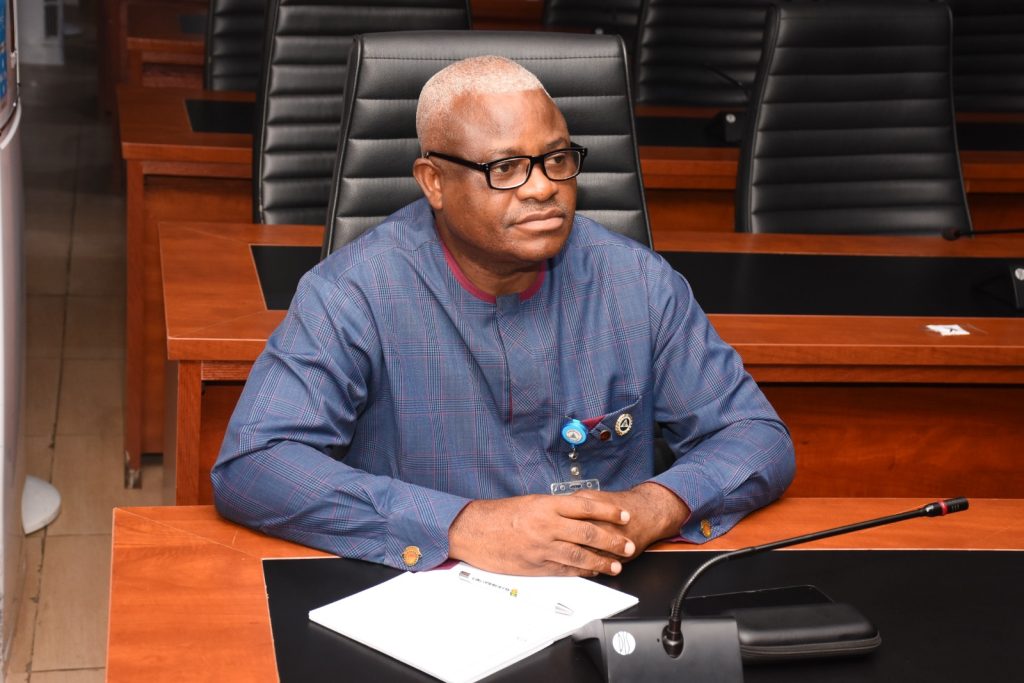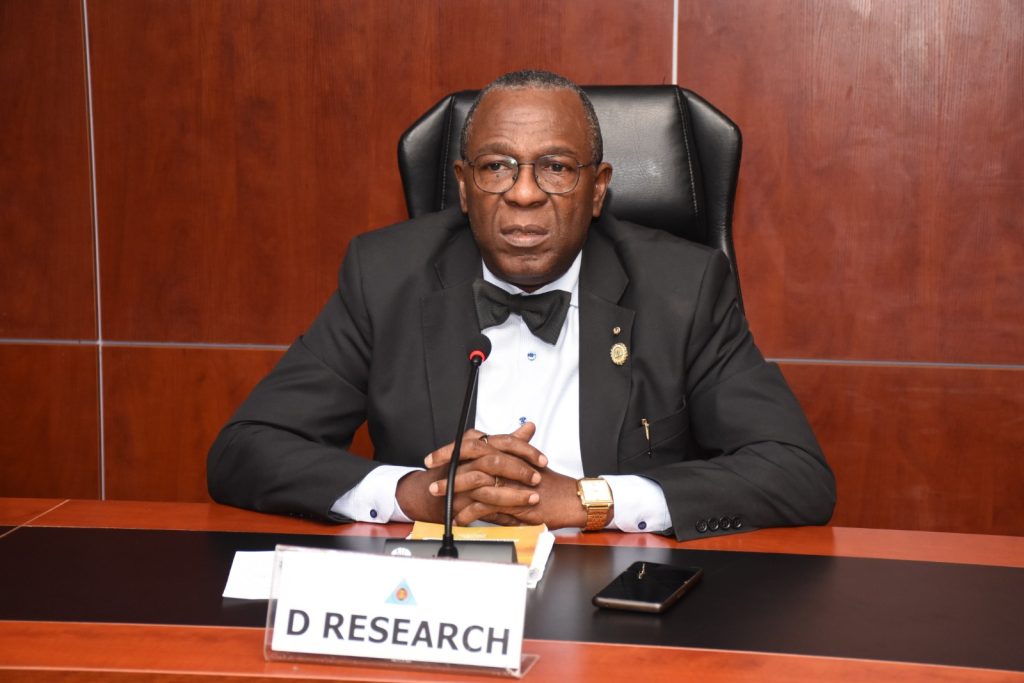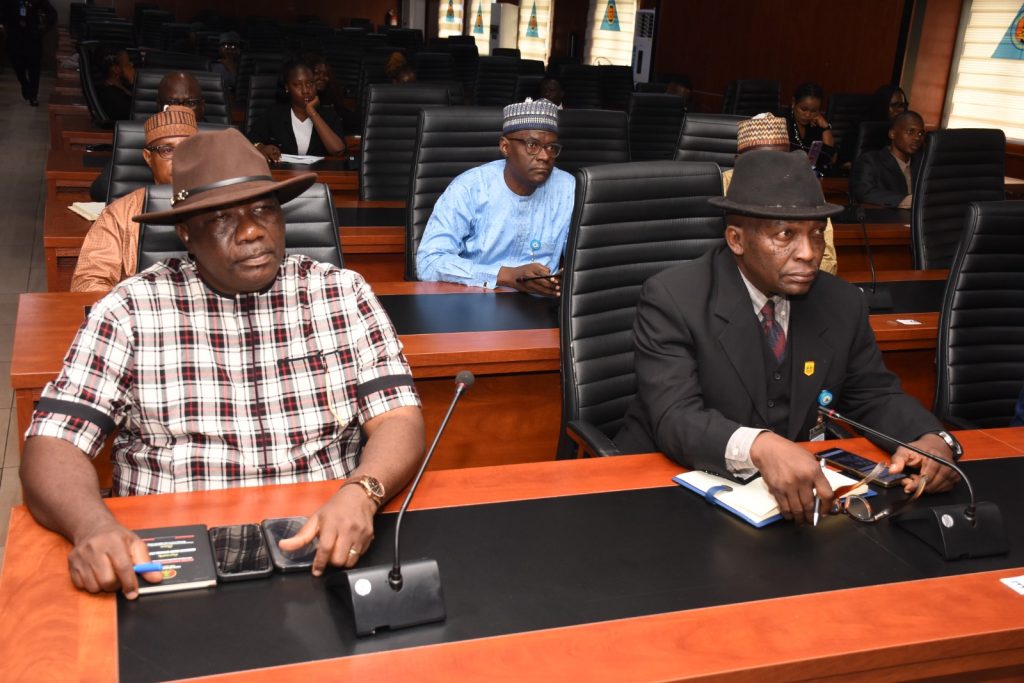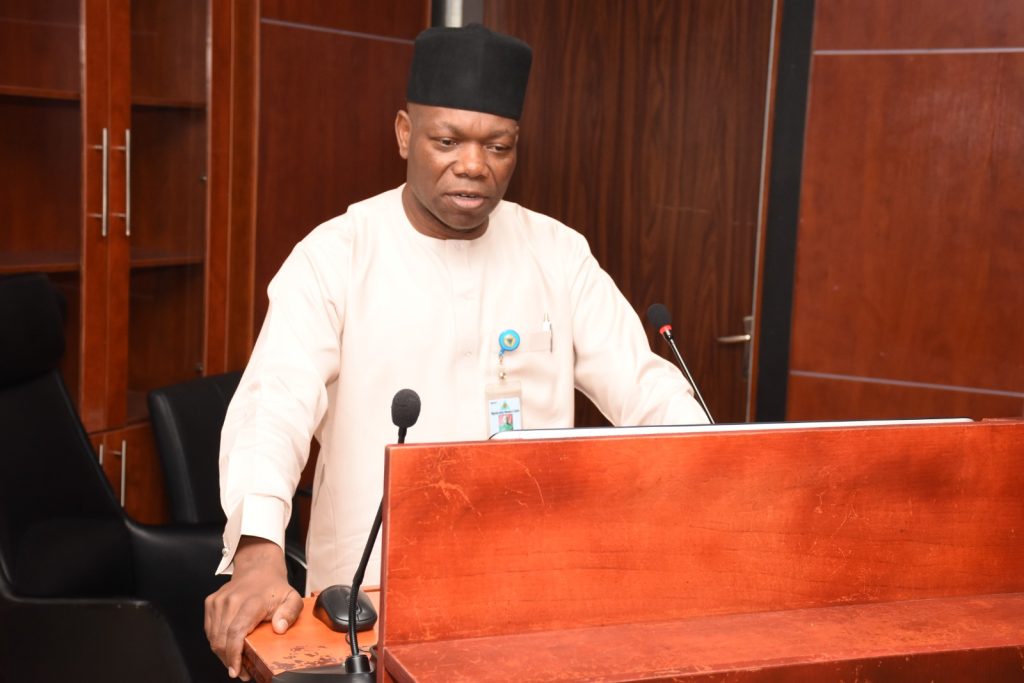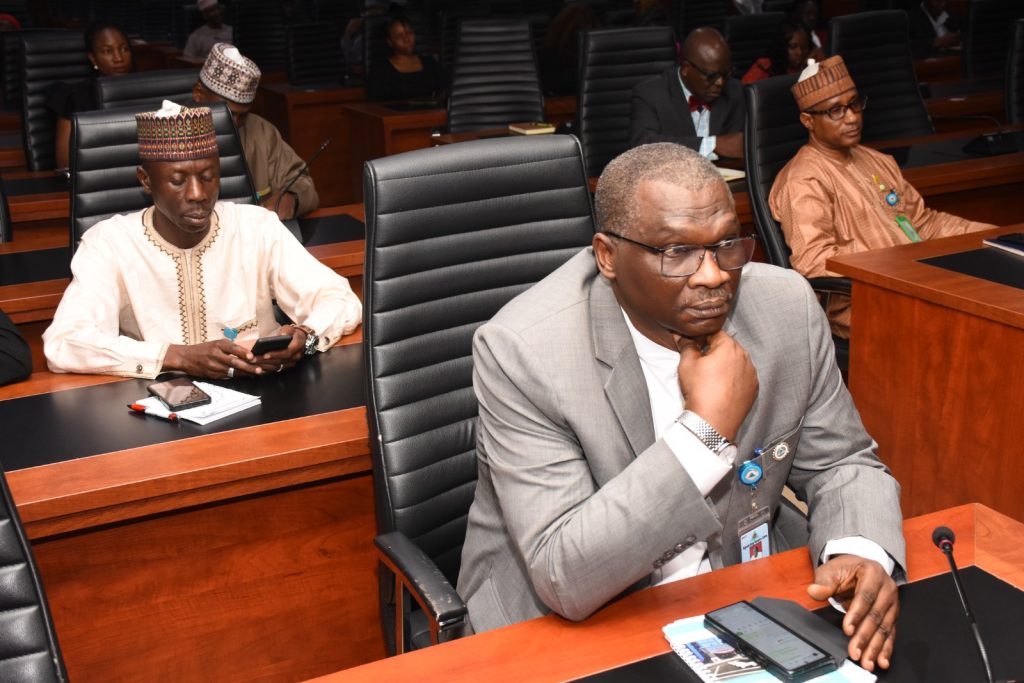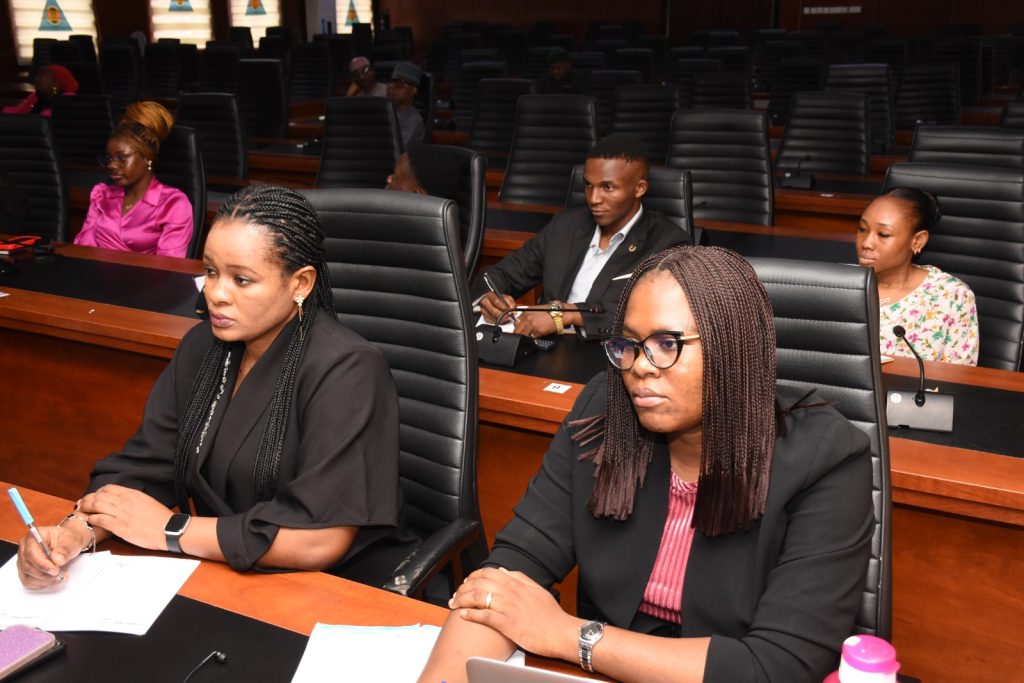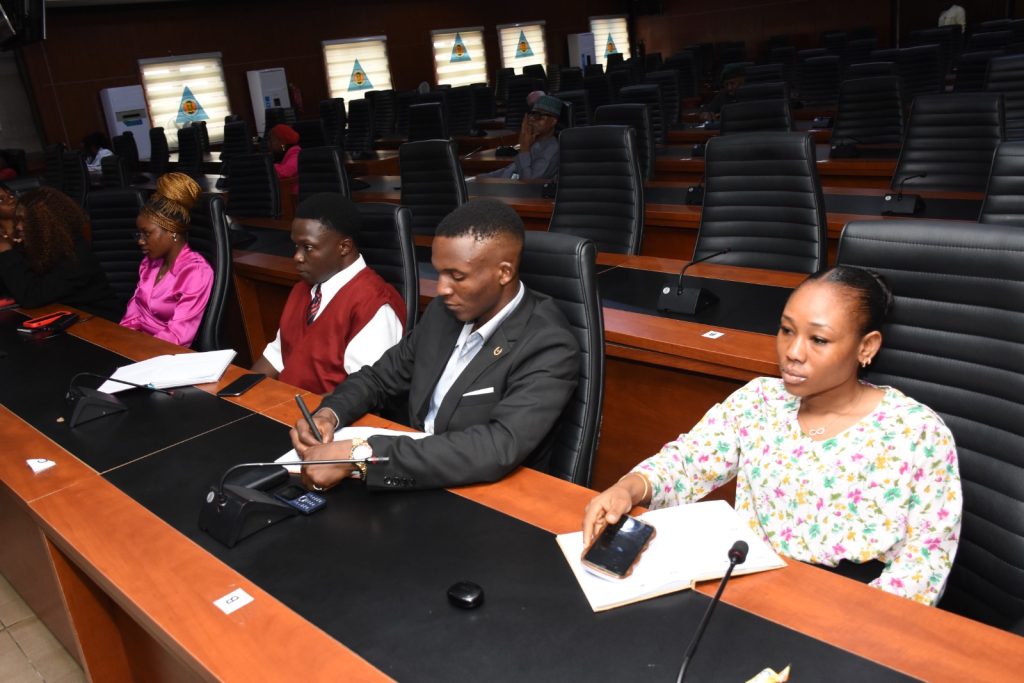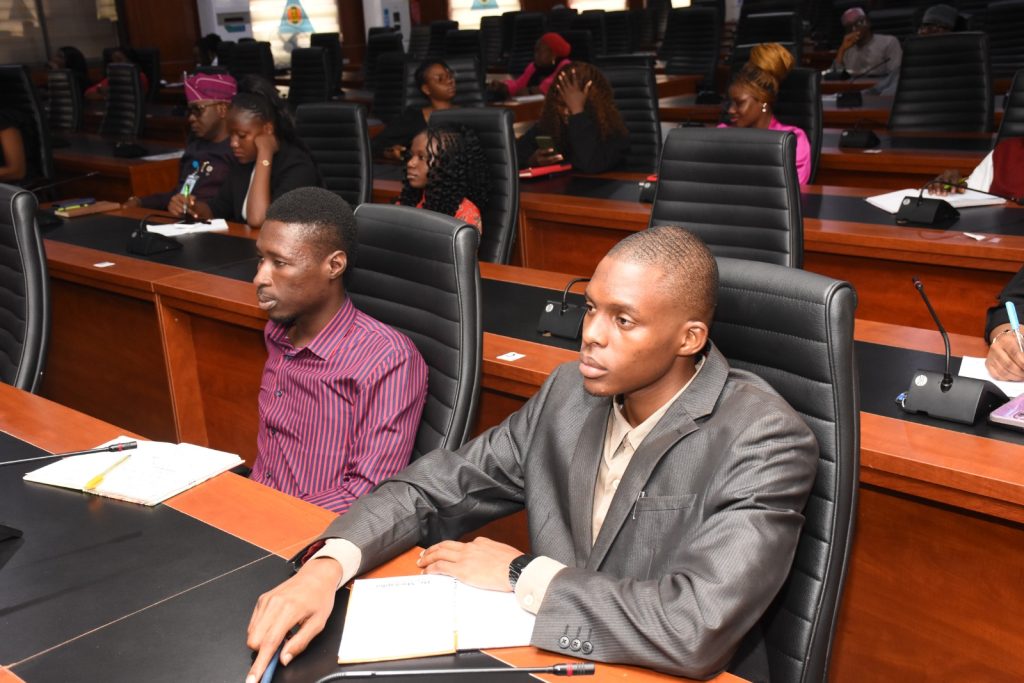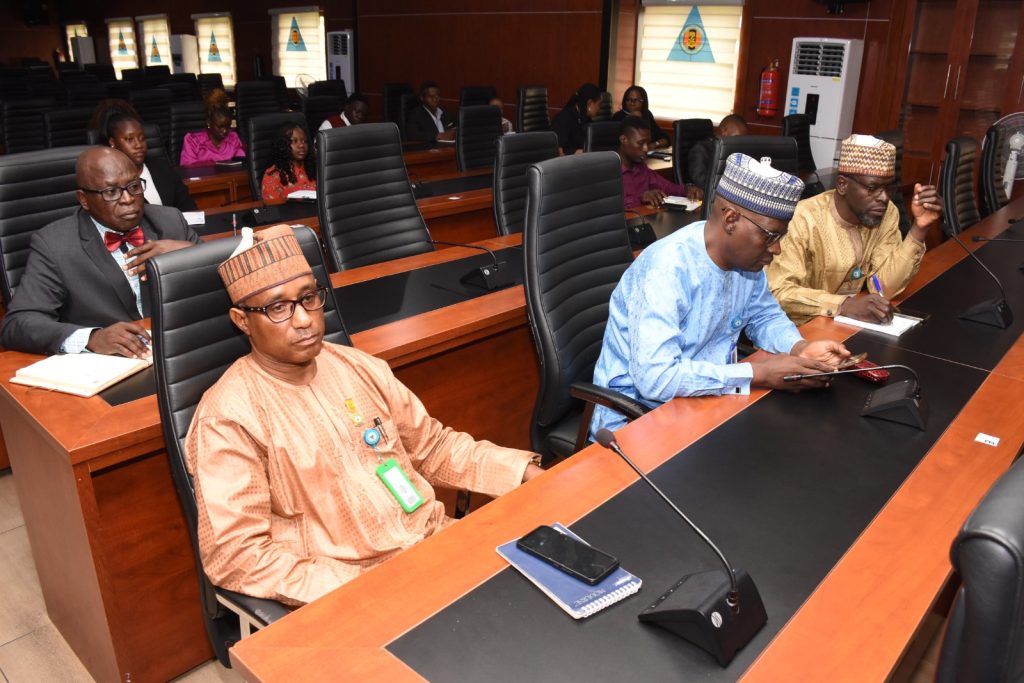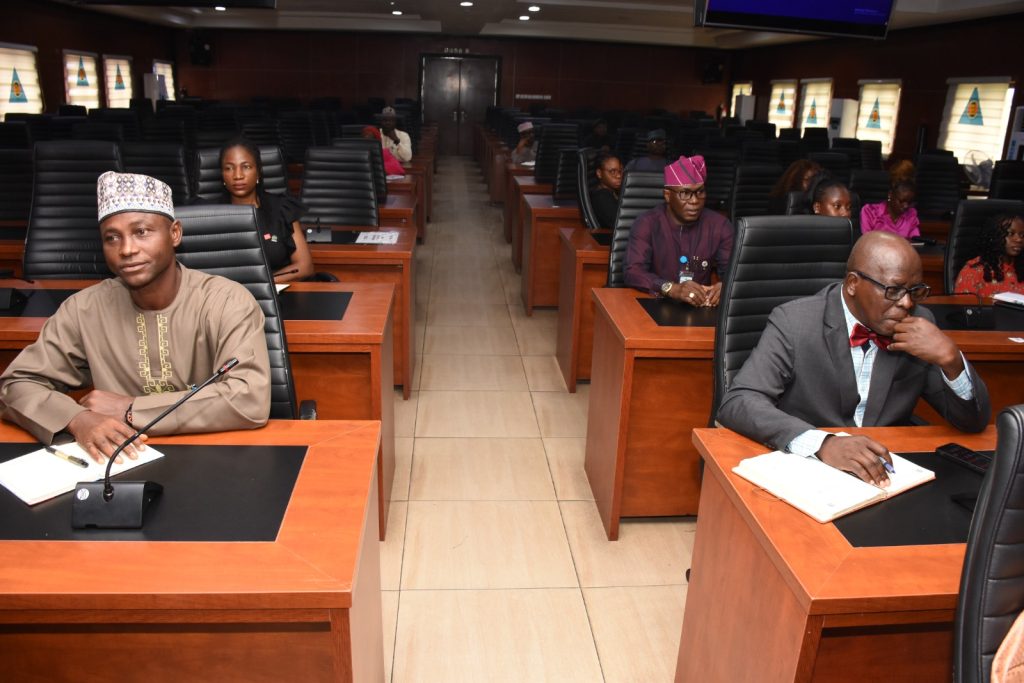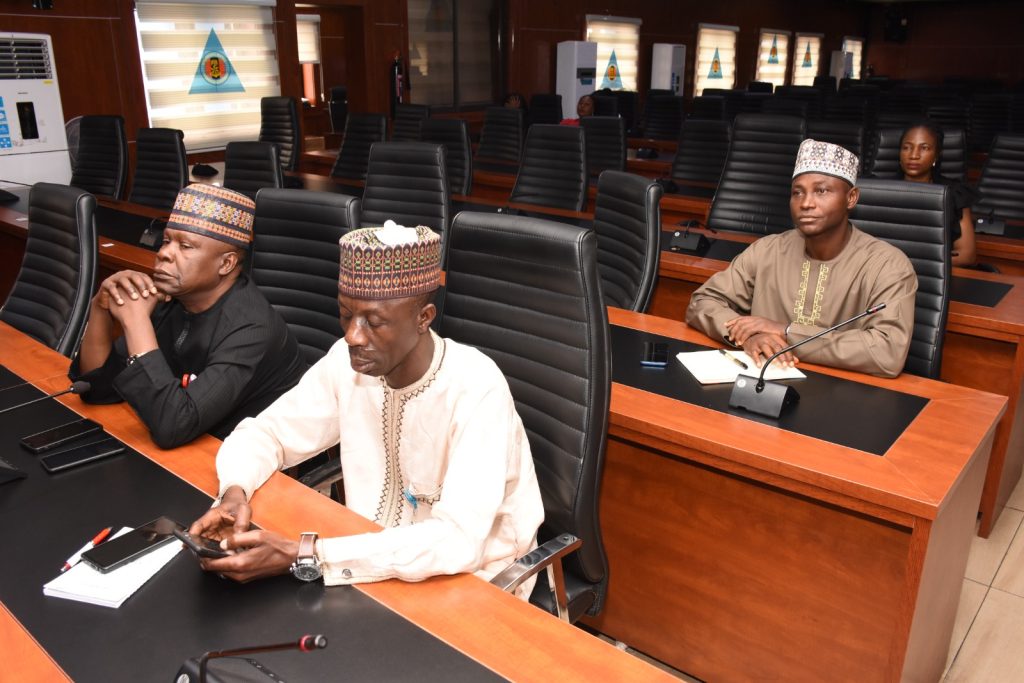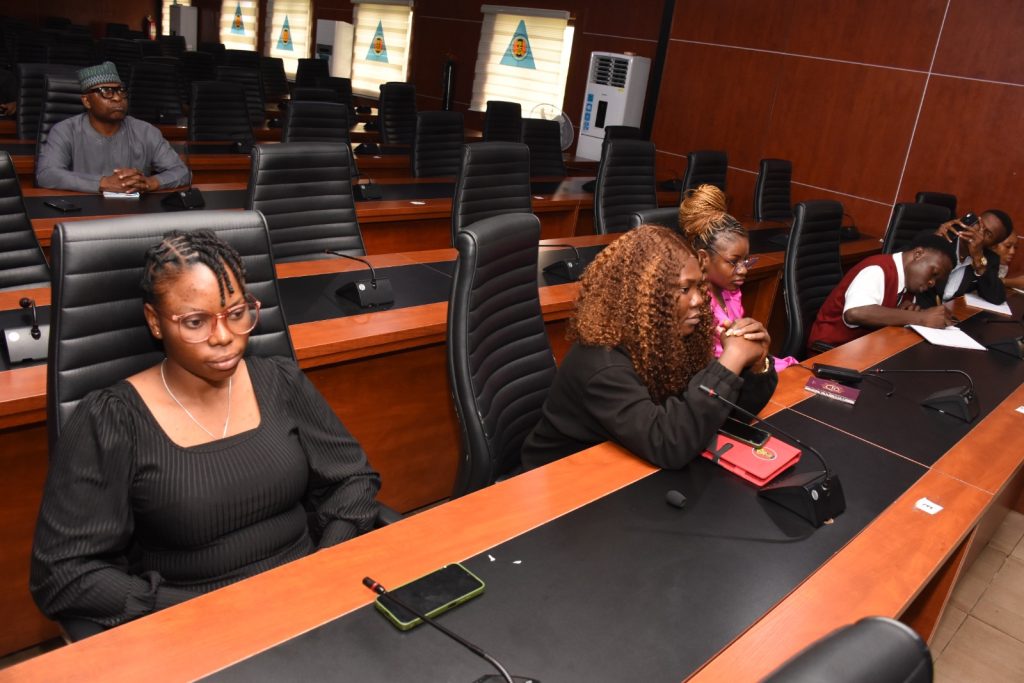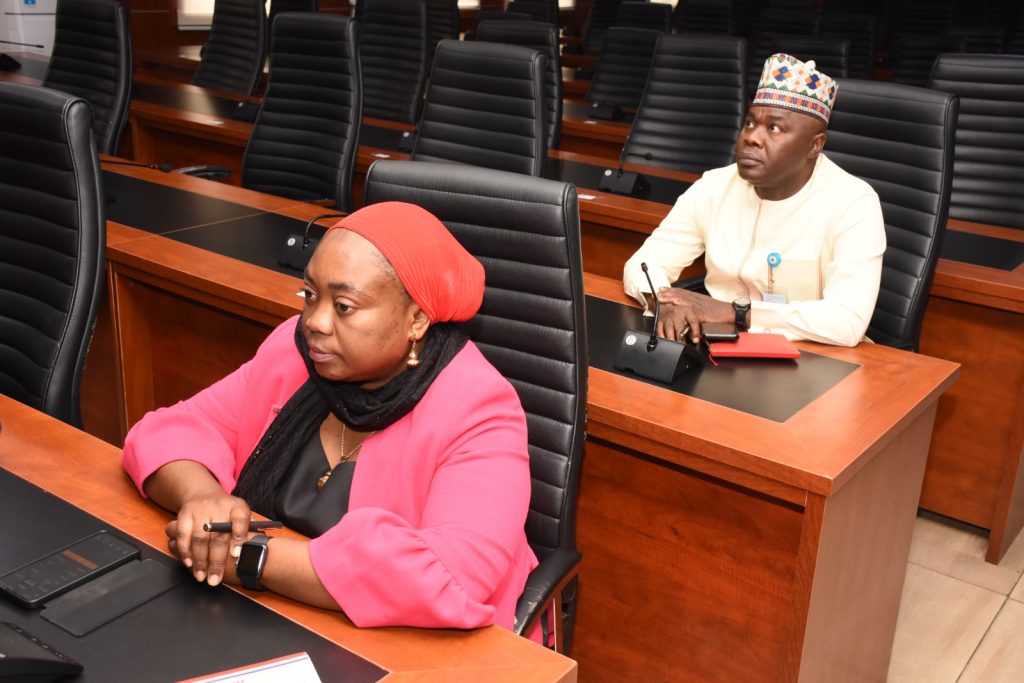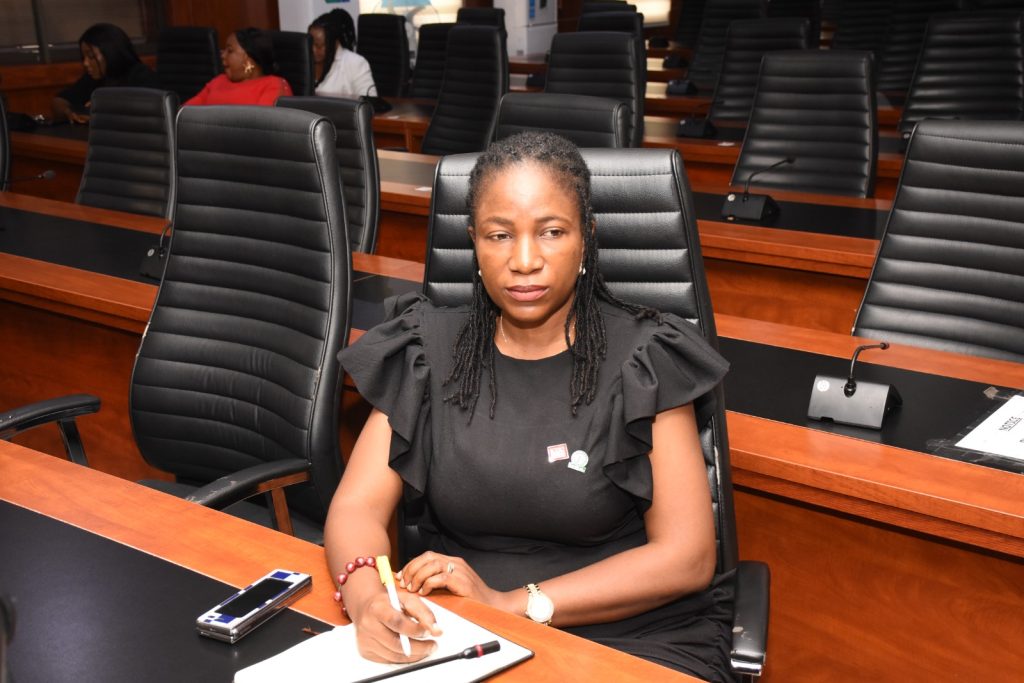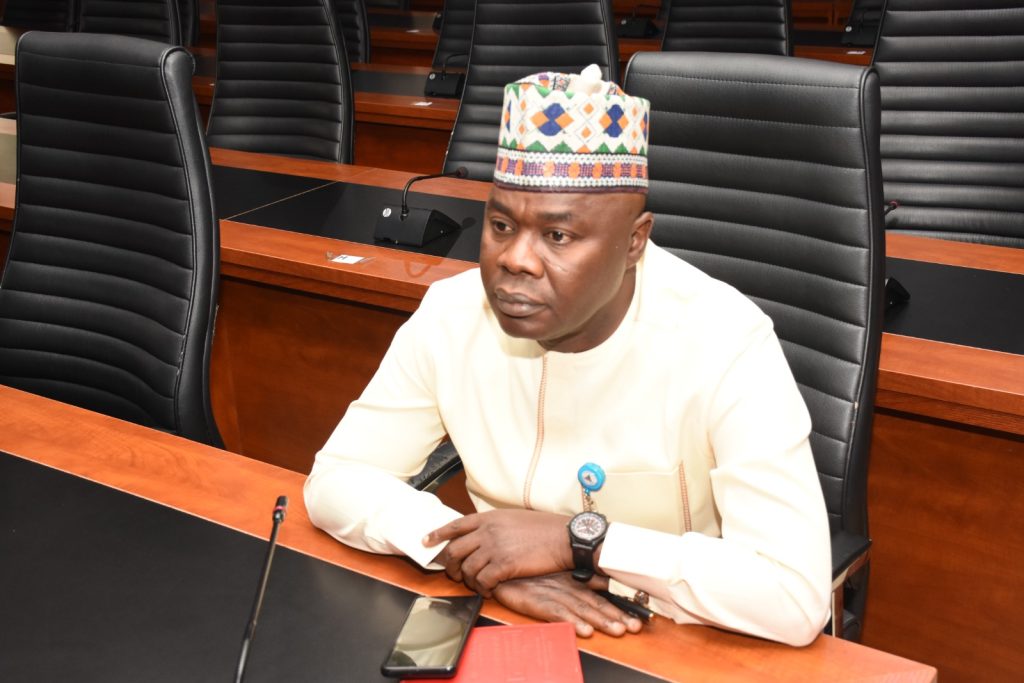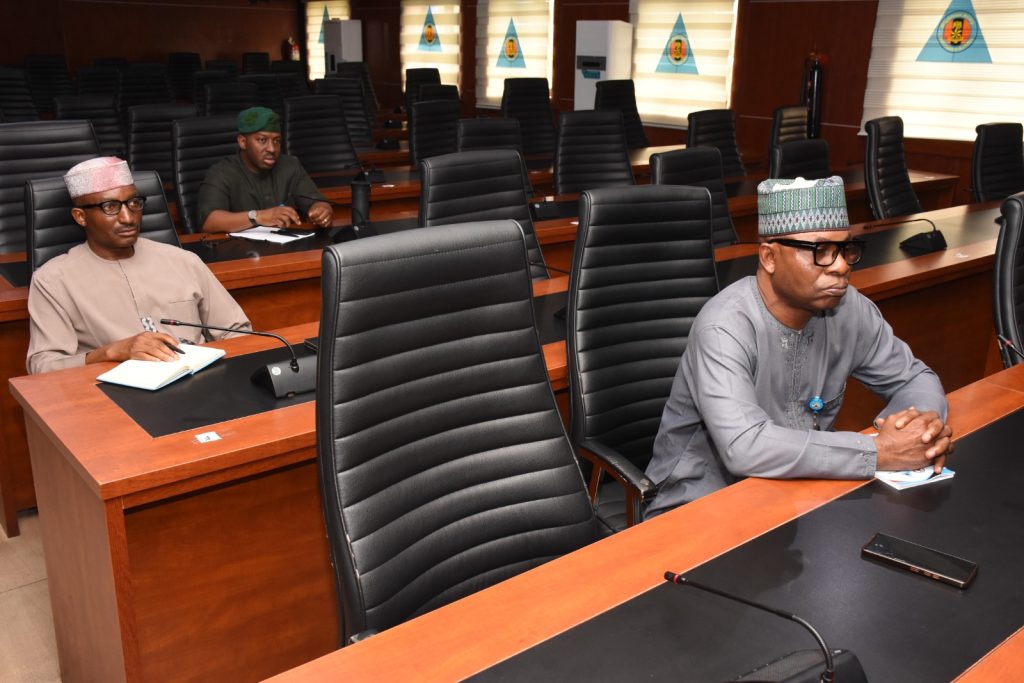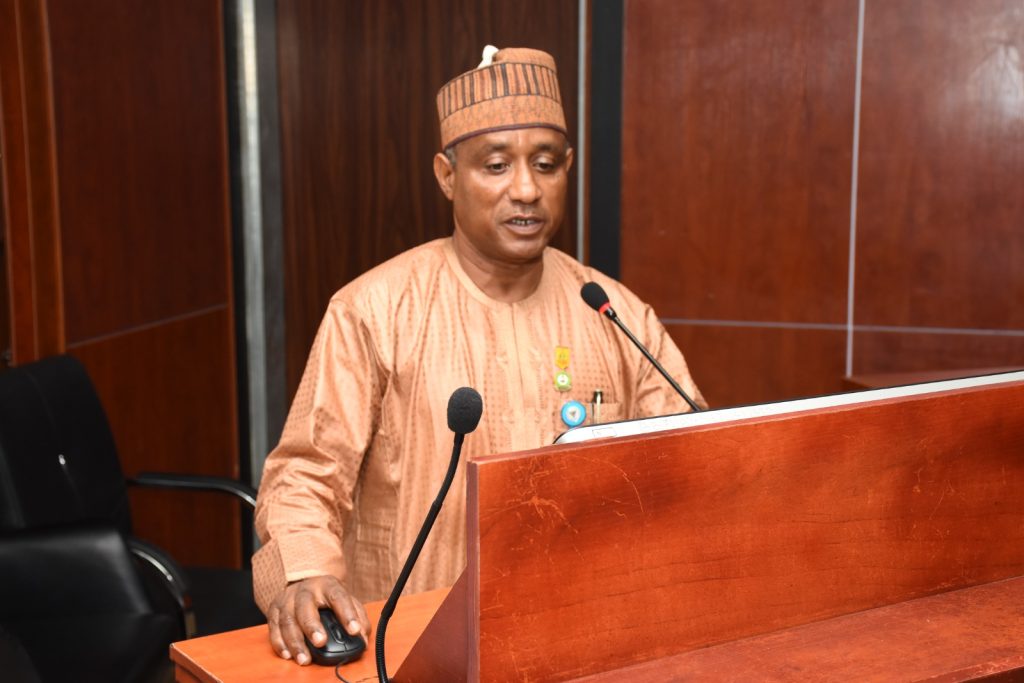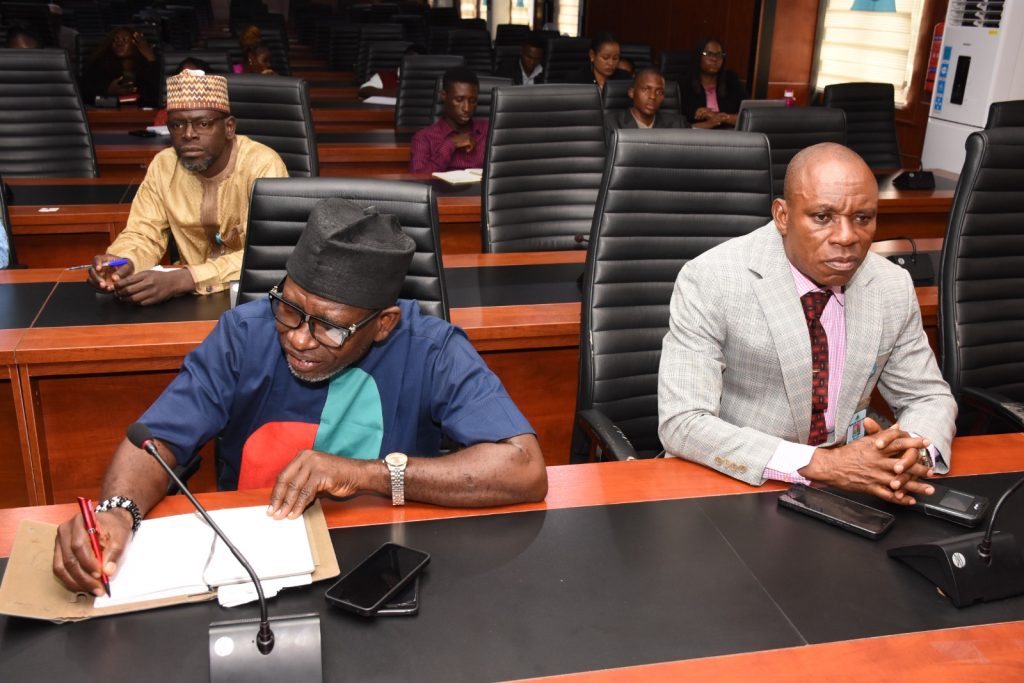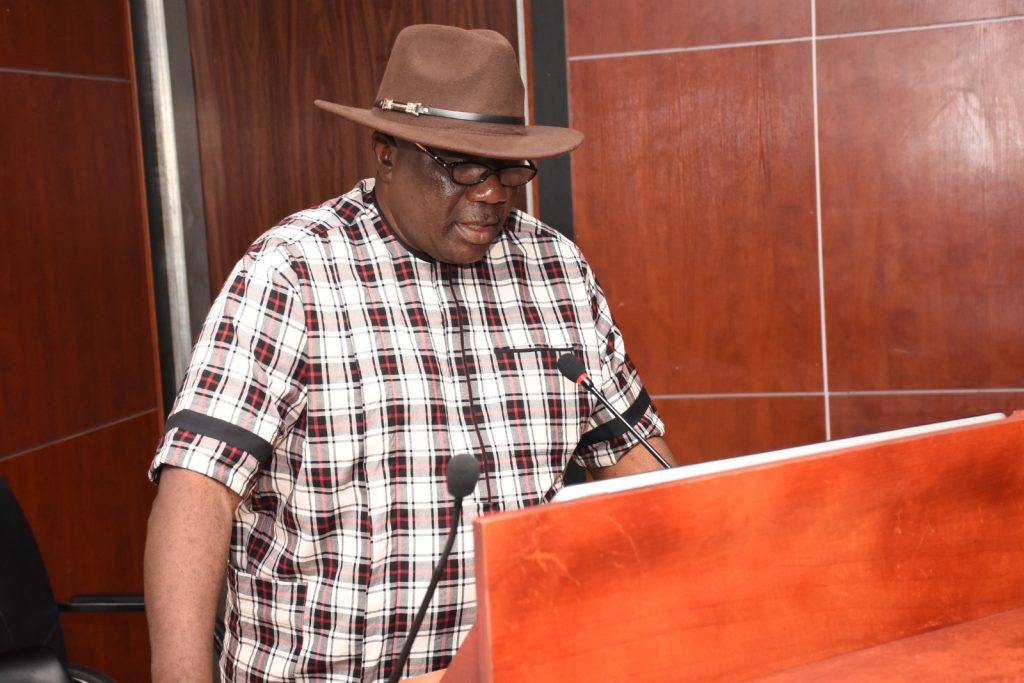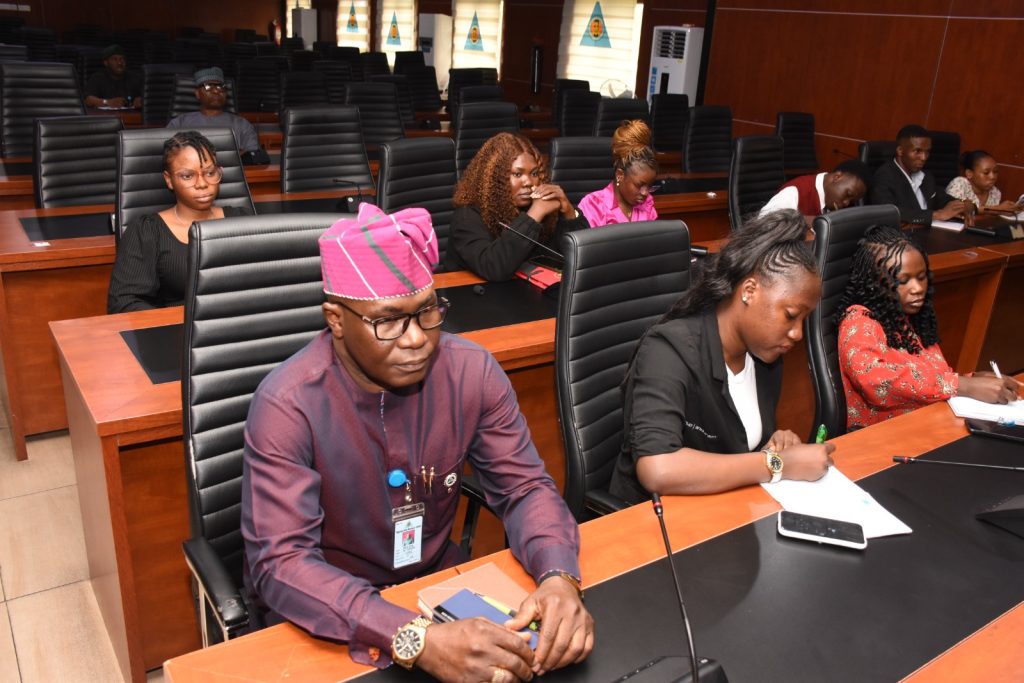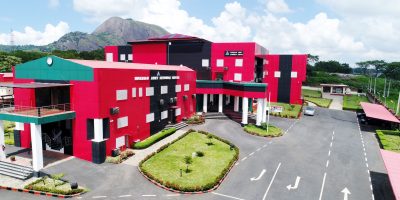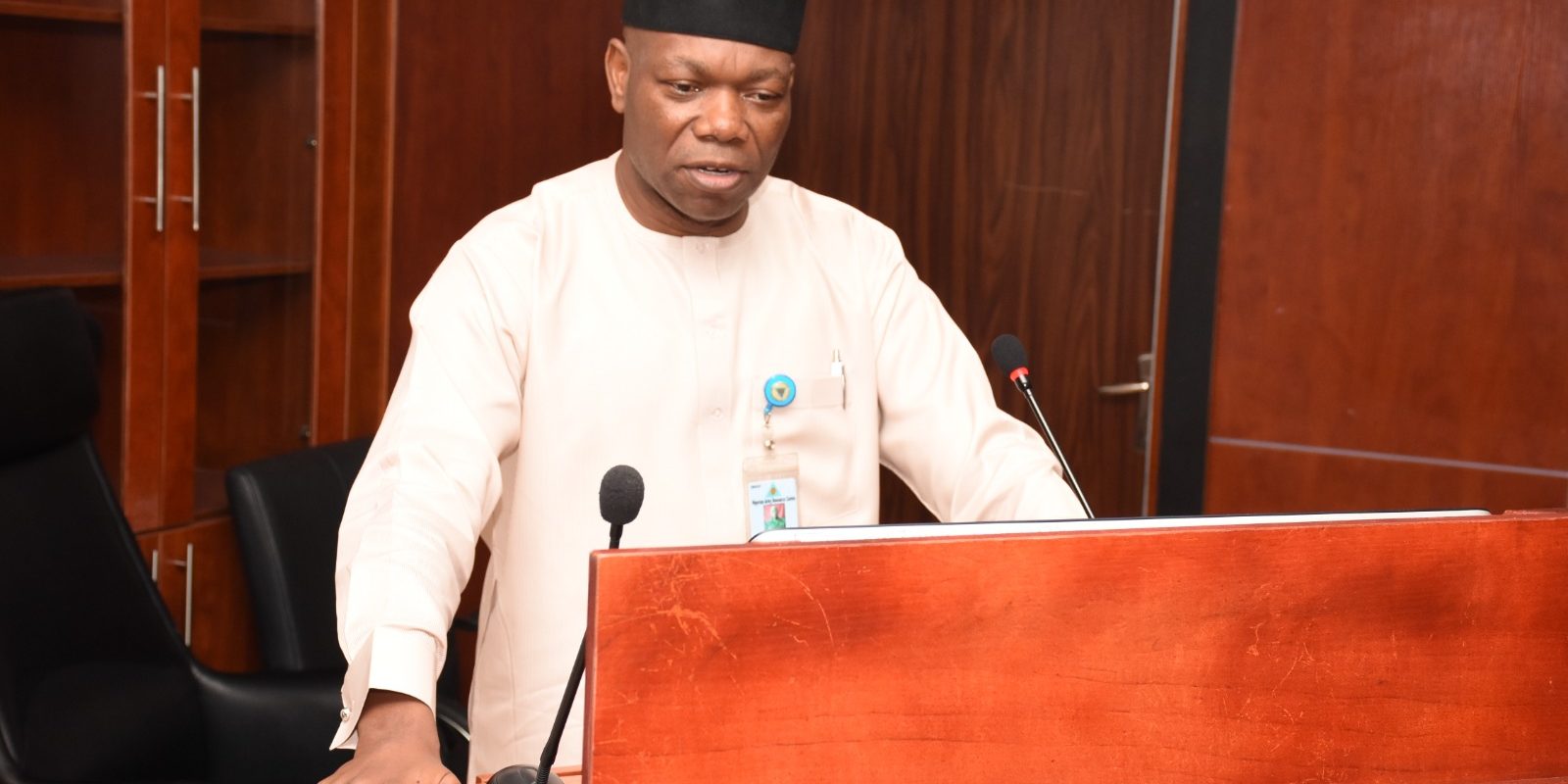The Monday 2 September 2024, edition of the Nigerian Army Resource Centre (NARC) Weekly Subject Experts’ Presentation was held at Hall C, TY Buratai Block, Abuja. There were three presentations made by the Subject Experts on Western Europe, West Africa and Gulf of Guinea and Indian Sub-Continent.
The first presentation by Maj Gen GU Chibuisi subject expert on Western Europe focused his presentation on how, Swiss Court Convicts two Executives for Embezzling $1.8bn From 1MBD. AlJazeera, on 28 August 2024, reported the conviction of 2 executives of Malaysia’s State Investment Berhad (1MDB) – a national investment fund, by a Swiss Federal Criminal Court. The individuals are Patrick Mahony and Tarek Obaid, who had been accused of embezzling more than $1.8 billion from 1MDB. The verdict is part of anticorruption efforts on a scandal in 1MDB involving international corruption since 2015. The two men, affiliated with the oil exploration company PetroSaudi, were accused of deceiving 1MDB by creating the false impression that the Saudi government backed their company. Obaid received a seven-year sentence, while Mahony was sentenced to six years. Their assets, including property and over $240 million in bank accounts, will be confiscated and returned to 1MDB.
Prosecutors claim the duo collaborated with fugitive financier Jho Low, an adviser to former Malaysian Prime Minister Najib Razak, to siphon funds from 1MDB, using the money for personal luxuries and to develop PetroSaudi. 1MDB’s board welcomed the convictions, stating that it is a step towards justice for the people of Malaysia. The 1MDB scandal, resulting in the embezzlement of approximately $4.5 billion, has implicated numerous high-profile figures, including Former PM Najib and senior executives from Goldman Sachs. The scandal sparked mass protests in Malaysia and contributed to the fall of the United Malays National Organization (UMNO) in the 2018 election.
In his analysis and lessons for Nigeria Maj Gen GU Chibuisi noted that corruption in Nigeria is a complex issue that permeates various sectors of society, particularly in governance and public administration. It manifests in several forms, including bribery, embezzlement, outright stealing and the abuse of public office for private gain. Corruption in Nigeria can be traced to the colonial era, where the seeds for a culture of patronage were sown. It has subsequently advanced into a more complex and systemic problem that undermines the nation’s development. The oil sector, that is the backbone of Nigeria’s economy, has been particularly vulnerable to corruption. Reports have highlighted how billions of dollars have been siphoned through various fraudulent schemes, such as fuel subsidy scams, illegal oil bunkering and inflated contracts (Eze, 2020).
A notable example of corruption in the Nigerian oil sector is the Malabu Oil scandal, which involved the allocation of the OPL 245 oil block. In 1998, the oil block was controversially awarded to Malabu Oil and Gas, a company secretly owned by then Minister of Petroleum Resources, Dan Etete. The deal was marred by allegations of bribery and money laundering, with over $1.1 billion allegedly paid in bribes to Nigerian officials and middlemen. The scandal led to several investigations and legal battles across multiple jurisdictions, including the United States, the United Kingdom and Italy. However, despite the international attention, the Nigerian government has struggled to hold those involved accountable. Several cases involving highly placed individuals have also been in the public glare. A recent case involves the former Governor of Kogi State, Yahaya Bello.
The Economic and Financial Crimes Commission (EFCC) has been investigating allegations of corruption and mismanagement of state funds against Bello, focusing on claims of financial impropriety during his tenure as governor. The EFCC’s investigations centered around the alleged diversion of state funds, money laundering, and embezzlement of public funds. Reports indicate that billions of Naira were allegedly misappropriated under his administration, particularly through dubious contracts and questionable withdrawals from the state’s treasury. The above cases highlight the nature of corruption in Nigeria’s governance system, where public officials often exploit their positions for personal gain at the expense of development and public welfare.
He recommended that the FGN should set up special anticorruption courts and fix the time for conclusion of cases and also strengthen its cooperation with international partners in the fight against corruption.
Similarly, the second presentation by Maj Gen OO Adeleke (Rtd) subject expert on West Africa and Gulf Of Guinea focused his presentation on how, Four Ideas that Can Help Ghana Preserve Food Security When the Next Drought Hits. Joseph Opoku reports on 24 Aug 2024 that Ghana’s food security situation has officially entered a crisis phase following a dry spell in eight of the country’s 16 regions. In the middle of what is supposed to be the major rainy season, several parts of the country have had little to no rainfall over the last two months. This situation prevented some farmers from preparing their farmlands for production while those who were able to prepare their land could not sow due to the absence of moisture. At the ministers’ press briefing with the Minister for Food and Agriculture Dr. Bryan Acheampong and Ministers of Finance and Defence, a journalist, Nana Poku asked this very thoughtful question; “What long-term solutions, policies or programs are you putting in place to deal with this, because it is going to recur, so we will not come back and be asking for alms?
In response, Opoku opines that Ghana needs to attend to its food security challenges strategically by considering the: Need for strategic food stocks. It makes no sense that as a nation, that Ghana has no strategic grain stocks and now find itself scrambling to import grains as an emergency measure after being hit with just two months of a dry spell. The finance minister acknowledged at the press briefing that food imports will likely impact the country’s already weak Cedis. Going forward, the government must resource institutions like the National Food Buffer Stock Company (NAFCO) to construct and maintain more grain storage facilities. Ghana needs more storage facilities and an efficient distribution system to quickly release reserves to areas in need during emergencies. Improve irrigation facilities: Only about 3% of farmlands in Ghana are irrigated. “a lack of access to irrigation stifles the resilience of agriculture in Ghana.” Development and expansion of irrigation systems that can ensure a consistent water supply for crops regardless of rainfall patterns, can reduce the risks associated with droughts. Investment in seed systems. Seeds remain the fundamental building blocks of agriculture. They are the primary source from which plants grow. If you get every aspect of production right, have the appropriate irrigation facilities, use the right fertilizers, and do not use quality seeds, nothing much will be gained from the field. For maximum impact, these improved seeds should be coupled with supportive policies, effective extension services, and ongoing research to address the specific needs of different regions.
In his analysis and lessons for Nigeria Maj Gen OO Adeleke (Rtd) noted that Food security is a phenomenon which is multidimensional with economic, environmental and social aspects. Food is no doubt, the most basic of all human survival needs. Unfortunately, food insecurity remains prevalent in Nigeria, and malnutrition has resulted in death of many of its citizens. Apart from ravaging drought and deforestation due to climate change, in the North, the following among others have been identified as the prime agents of food insecurity in Nigeria.
Insufficient Production: The agricultural sector has remained under developed and depended too much on primary agriculture system with degraded low fertile soils, less external farm inputs utilization and significant loss of food crops both before and after harvest, and lack of facilities for storage and preservation of food.
Inefficient Policies and Corruption: Food insecurity has persisted in Nigeria because of inefficient policies especially with respect to agriculture. Frequent policy changes and poor performance of Nigerian monitoring and implementation agencies also has its toll on food crisis. Each time a new government takes power, the previous food and agricultural policies are abandoned and new ones are set-up. Unfortunately, there are no guarantees that the new ones are better-off, in fact often times they are worse-off.
Examples of some of the abandoned past intervention initiatives are Operation Feed the Nation, Lower River Basin Development Authorities, Green Revolution, Conflicts and Civil Insecurity. Civil insecurity born out of the Boko Haram and farmers/herders conflict has persisted in the extreme Northeast and Northwest, causing population displacement and limiting crop production below average, restricting market and trade activities and causing higher food prices. Strategies for Achieving Food Security in Nigeria; Efforts to combat food insecurity will not only make food available but also ensure that people can consistently afford to make it ready for consumption through availability, accessibility, utilization and stability.
He recommended that the FGN should engage public and private corporations as well as financing institutions to sincerely promote mechanized farming amongst small-holder farmers and also learn some lessons from Ghana on policy direction in the areas of strategic food storage, improved irrigation facilities, investments in seed systems and fight against drought and deforestation.
The third presentation by Brig Gen WD Nasiru subject expert on Indian Sub-Continent focused his presentation on how, India’s Transformation From Defense Importer to Exporter: A 30-Fold Surge In Exports And Key Global Buyers. The Economic Times News on 22 Aug 2024 reported that India has seen a remarkable increase in its defense exports over the last decade, growing more than 30 times. Currently, the country supplies defense products to over 90 nations, a trend driven by global conflicts like the Russia-Ukraine war and the Israel-Hamas conflict, which have prompted many countries to bolster their military capabilities. In the first quarter of 2024-2025, India’s defense exports surged by 78%, reaching Rs 6,915 crore, up from Rs 3,885 crore in the same period the previous year. The Indian government has played a pivotal role in this growth, implementing policies that simplify licensing and approvals, and showing a greater readiness to supply lethal arms.
In 2020, the Modi government set a target to achieve Rs 35,000 crore ($5 billion) in defense exports within 5 years as part of a broader strategy to reach a turnover of Rs 1.75 lakh crore ($25 billion) in defense manufacturing by 2025. In 2023-2024, India’s defense exports reached a record Rs 21,083 crore, a 32.5% increase from the previous year. The United States is the largest importer of Indian defense products, accounting for nearly 50% of the total exports. Major American companies like Boeing and Lockheed Martin have established significant operations in India, sourcing systems, subsystems, and components for their global supply chains. For example, Boeing’s joint venture with Tata Group in Hyderabad manufactures aero-structures for the AH-64 Apache helicopter. Lockheed Martin’s partnership with Tata Advanced Systems Limited produces components for the C-130J transport aircraft and the S-92 helicopter. India’s defense exports also range from small arms and ammunitions to advanced systems like lightweight torpedoes, drones, and fast-attack vessels.
In his analysis and lessons for Nigeria Brig Gen WD Nasiru pointed out that, Historically, Nigeria has significantly relied on foreign nations for its military equipment, a dependency that leaves the country vulnerable, particularly during international crises or diplomatic tensions. This reliance on external suppliers risks compromising Nigeria’s defense capabilities due to factors outside its control, such as embargoes, delays, or geopolitical changes. Developing a domestic defense industry is aimed at reducing these risks, ensuring that Nigeria’s military remains well-equipped regardless of external pressures. This initiative is part of a broader national security strategy that underscores the importance of self-reliance in critical sectors. It is against this background that the Defence Industries Corporation of Nigeria (DICON) was established in 1964.
The creation of DICON marked a significant milestone in Nigeria’s efforts to develop indigenous defense capabilities and reduce reliance on foreign military supplies. DICON was established primarily to produce small arms and ammunition for the Nigerian Armed Forces, as well as to undertake other related defense manufacturing activities. In its early years, DICON’s production was largely limited to the assembly of firearms and the manufacturing of ammunition. The corporation initially received technical assistance from foreign partners, particularly from West Germany, which helped in setting up the production facilities and training Nigerian personnel. Over the decades, DICON expanded its operations to include the production of rifles, pistols, machine guns, and other small arms, as well as the refurbishment of military vehicles and equipment.
The DICON Act 2023 represents a significant milestone, creating an enabling environment for the corporation to be equipped with state-of-the-art automated production lines and systems. Nigeria’s President, Bola Tinubu GCFR, emphasized this during the opening of the Maiden Africa Defence Industries Conference and the DICON 60th Anniversary Celebration at the Yar’Adua Centre in Abuja. The President expressed pride in the progress of Nigeria’s defence industry, particularly in establishing the first automated production lines for unmanned aerial and land vehicles. Similarly, the Honourable Minister of Defence, Mohammed Badaru Abubakar, CON, reaffirmed the administration’s commitment to revitalizing and repositioning Ajaokuta Steel Company to produce military hardware, supporting Nigeria’s fight against insecurity. According to Dr. Bello Matawalle, Minister of State for Defence, the DICON Act 2023 is a pivotal moment for the country’s defence sector, providing a legal framework that enhances DICON’s autonomy, efficiency, and capacity to address Nigeria’s evolving defence needs.
He recommended that the FGN should prioritize substantial investments in research and development within the Defence sector, while also enhancing collaboration and partnerships between the Defence Industries Corporation of Nigeria (DICON), universities, and the private sector to foster innovation and the development of advanced military technologies and also invest in the continuous training and development of the workforce in the defence sector by establishing specialized training centers and programs focused on advanced manufacturing techniques, quality assurance, and innovative technologies.
